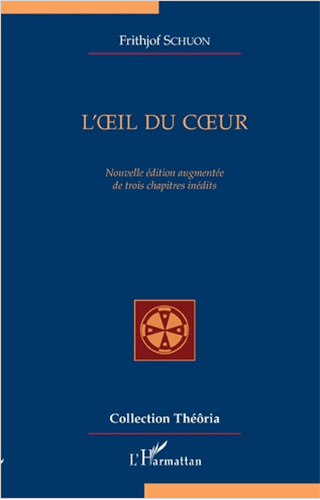
Frithjof Schuon Archive

Articles
| Titel | Zusammenfassung | Source | Article Language | Download | hf:tax:article_subject |
|---|---|---|---|---|---|
| Travel Meditations | Many questions arise simply because man lets himself be enticed into the domain where questions lie, instead of keeping firmly to the domain of certainty, If a man is confused by something, he should first of all come back to the certainty that it is not this world as such which is important, but the next world, and above all that God is Reality; and he should say to himself: in the face of this truth, which in principle is the solution to all questions, this or that question just does not arise; it is enough if he has the Answer of answers. And then God will give him a light also for what is earthly and particular. | Studies in Comparative Religion - Vol. 14, Nos. 1 & 2 (Winter-Spring, 1978) | English | comparative-religion multiple | |
| The Three Dimensions of Sufism | “FEAR” (makhâfah), “Love” (mahabbah), “Knowledge” (tarîqah): In Sufism (tasawwuf ), these are the three dimensions or stations of the way (tarîqah); “dimensions” from the point of view of their vocational separation or from the point of view of their coincidence in every spiritual vocation, and “stations” from the point of view of their succession in spiritual development. | Studies in Comparative Religion, Vol. 10 No. 1. (Winter 1976) | English | comparative-religion multiple sufism |
Featured Books
L’Oeil du coeur (Taschenbuch)
Dieses Buch enthält den vollständigen Originaltext, der 1995 bei L’Âge d’Homme erschienen ist, jedoch mit drei neuen Kapiteln.
Featured Poems
Adastra and Stella Maris: Poems by Frithjof Schuon-The Aura
All creatures exist in order to say “God”;
Adastra and Stella Maris: Poems by Frithjof Schuon-Outlook
You think you own your earthly life;
Adastra and Stella Maris: Poems by Frithjof Schuon-Pneuma
Man lives in two worlds; it is hard
Featured Articles
Foreword to various poetry volumes by Schuon
A Schuon Sentence
A. K. Saran’s article appeared in the journal Sophia as part of an issue dedicated to the life and thought of the late Frithjof Schuon. It is a wide-ranging view of some key Schuonian, and thus „Perennialist,“ concepts, as Saran focuses on Schuon’s book The Eye of the Heart. A. K. Saran also incorporates much traditional Hindu thought and the words of A. K. Coomaraswamy throughout this exploration of some aspects of Schuon’s thought.
